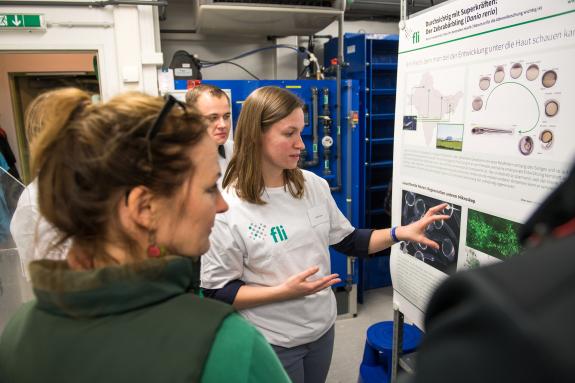We would like to introduce you to the turquoise splendid groundfish(Nothobranchius furzeri). This fish lives in seasonally drying ponds in south-east Africa, where rainfall is rare and unpredictable. The fish has adapted optimally to this special habitat. For example, the fertilized eggs are surrounded by a solid shell to protect them from drying out and to survive longer periods of drought.
As soon as the dried-out pools are filled with water again, the fish hatch and become sexually mature and mate within a few weeks. The fish ages very quickly, as its natural lifespan is only a few months - almost as if in fast motion, with the typical signs of ageing that we see in humans.
This short lifespan makes the fish a promising model organism in ageing research and helps us to study and understand ageing.
We are also conducting research on zebrafish(Danio rerio), which originate from Asia. In this fish, embryonic development in the egg takes place completely outside the mother fish. As the fish remains transparent until it has fully developed, it provides insights into organ development. The development of the heart, kidney and blood vessels can be followed particularly well under the microscope. As 70 percent of the zebrafish's genes are also found in a similar form in humans, it is a valuable model organism for science, also when it comes to researching the development of diseases.

